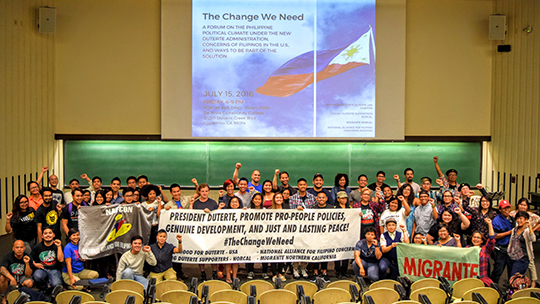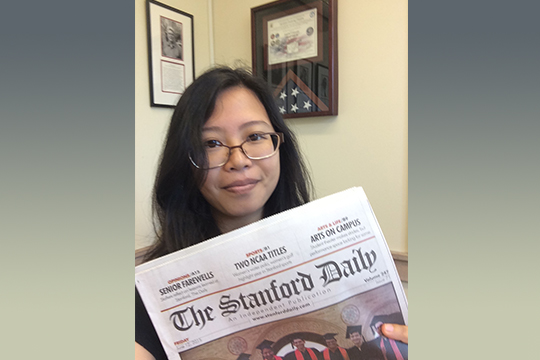Category: Socio-Economic Prosperity

Becoming part of the neighborhood
By Ian Macato, ’19 (Symbolic Systems)
The Filipino Community Center in the Excelsior neighborhood of San Francisco serves to provide a safe space where Filipino families can access services, meet, and hold activities. The Excelsior neighborhood has the second highest population of Filipino/a people in San Francisco, and they are mostly low-income, working class immigrants. As true community members, we organize with partner grassroots organizations striving to fix the root causes of unemployment, unaffordable housing, and poverty in the neighborhood and in the Philippines. The center’s purpose is ordinary, helping community members to access government services and benefits. But serving as an intern at the FCC means to become a part of the Excelsior neighborhood and immerse oneself in the stories, experiences, and lives of the community members we serve. Through learning how to serve our kababayans (the Tagalog word for fellow compatriots), by helping them to get their much deserved government benefits, we also become their friends, counselors, and community members. We take part in their story and empathize with their struggle, knowing ours is interconnected.

When a house can’t be a home
By Zora Zambezi Williams, ’19 (Undeclared)
No water. No gas. No heat. Bedbugs. Mold. And more. When someone prevents a house from being a home, that is when the Fair Housing Advocates step in. This summer I got to play that role in the fight to preserve the sanctity of home at Brooklyn Legal Services Corporation A (BKA) for tenants in Brooklyn, NY.
I worked on buildings where landlords would offer buyouts to long-term residents in order to renovate and revalue old apartments to market rate tenants. People were harassed out of their homes by landlords with bogus non-payment cases, utility shut offs and refusals to address repair concerns. In one case, a tenant was harassed by the super of her building when he climbed her fire escape and tapped on her window unannounced.
Since these tenants were denied a safe home we, BKA, demonstrated on the steps of City Hall, brought cases to state court, and ultimately galvanized the tenants to organize themselves to take action against their disparate treatment. We reminded them of the power and rights that they have to keep their superiors accountable, because when a house can’t be a home, there are no roots from which a seed can be grown.
Zora is a 2016-17 fellowships peer advisor.

A home for conversation
By Catherine Zaw, ’15 (Biology, Linguistics)
When I signed up to volunteer for a homeless women’s shelter in the winter of 2013, I anticipated physical work moving mattresses and sleepless nights worrying about the safety of the shelter. What I didn’t expect was the bonds I would form with some of the residents.
Annie had been a waitress in a traditional Italian restaurant before it was replaced by a fast food chain. “I can name all the types of pasta,” she told me. She drew pasta shapes on a scrap of napkin. “The conchiglie is my favorite. It’s like a conch shell. My grandmother used to make it all the time.”
Annie taught me everything she knew after a lifetime working with pasta. In turn, I told her about how the words macaroni, macaroon, and macaron have the same etymological heritage, but are completely different foods now. We traded knowledge and life experiences, and after a whole winter, I was sad to see our shelter time come to an end.
Annie wasn’t the only woman with a story at the shelter. Each visitor came in with her own experience, and the lesson I took was that there is a story in everyone, everything—and that all of these stories are important.
